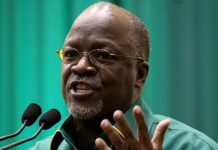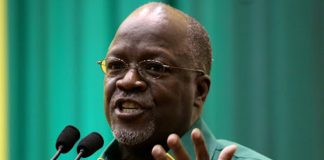Chinua Achebe was born on November 16, 1930, to the family of Isaiah Okafor and Janet Achebe, in Ogidi, formerly Eastern Nigeria, but now known as Anambra state. Chinua’s unabbreviated name, Chinualumogu, means “May God fight my battles for me”. He was brought up as a Christian, but he remained curious about the more traditional Nigerian faiths. He was educated at Central Primary School, Akpakogwe, Ogidi, and Government College, Umuahia, before he proceeded to the University College at Ibadan, graduating, in 1954.
Chinua Achebe was not satisfied with books about Africa written by British authors such as Joseph Conrad (1857–1924) and John Buchan (1875–1940), because he felt the descriptions of African people were inaccurate and insulting. While working for the Nigerian Broadcasting Corporation he composed his first novel, Things Fall Apart (1959), the story of a traditional warrior who is unable to adapt to changing conditions in the early days of British rule. The book won immediate international recognition and also became the basis for a play by Biyi Bandele. Years later, in 1997, the Performance Studio Workshop of Nigeria put on a production of the play, which was then presented in the United States as part of the Kennedy Center’s African Odyssey series in 1999. Achebe’s next two novels, No Longer At Ease (1960) and Arrow of God (1964), were set in the past as well.
By the mid-1960s the newness of independence had died out in Nigeria, as the country faced the political problems common to many of the other states in modern Africa. The Igbos, who had played a leading role in Nigerian politics, now began to feel that the Muslim Hausa people of Northern Nigeria considered them second-class citizens. Achebe wrote A Man of the People (1966), a story about a crooked Nigerian politician. The book was published at the very moment a military takeover removed the old political leadership. This made some Northern military officers suspect that Achebe had played a role in the takeover, but there was no evidence supporting the suspicion.
During the years when Biafra attempted to break itself off as a separate state from Nigeria (1967–70), however, Achebe served his home government as an ambassador. He traveled to different countries discussing the problems of his people, especially the starving and slaughtering of Igbo children. He wrote articles for newspapers and magazines about the Biafran struggle and founded the Citadel Press with Nigerian poet, Christopher Okigbo. Writing a novel at this time was out of the question, he said during a 1969 interview: “I can’t write a novel now; I wouldn’t want to. And even if I wanted to, I couldn’t. I can write poetry—something short, intense, more in keeping with my mood.” Three volumes of poetry emerged during this time, as well as a collection of short stories and children’s stories.
After the fall of Biafra in 1970, Achebe continued to work at the University of Nigeria, Nsukka, and devoted time to the Heinemann Educational Books’ Writers Series (which was designed to promote the careers of young African writers). In 1972, Achebe came to the United States to work as professor of English at the University of Massachusetts at Amherst. In 1975, he joined the faculty at the University of Connecticut. He returned to the University of Nigeria in 1976. His novel, Anthills of the Savannah (1987) tells the story of three boyhood friends in a West African nation and the deadly effects of the desire for power and wanting to be elected “president for life.” After it’s the release of the work, Achebe returned to the United States and took up teaching positions at Stanford University, Dartmouth College, and other universities.
Back in Nigeria in 1990 to celebrate his sixtieth birthday, Achebe was involved in a car accident on one of the country’s dangerous roads. The accident left him paralyzed from the waist down. Doctors recommended that he should reside in the United States for good to receive better medical care. So, he accepted a teaching position at Bard College, Annandale-on-Hudson, New York. In 1999, after a nine-year absence, Achebe visited his homeland, where his native village of Ogidi honored him for his dedication to the myths and legends of his ancestors. In 2000 Achebe’s nonfiction book, Home and Exile, consisting of three essays, was published by Oxford University Press. He was awarded the Man Booker Prize in 2007. Chinua Achebe died in March 2013 at the age of 82 and was given a rousing state burial by the Goodluck Jonathan administration.
The notable search machine, Google, has just honoured Chinua Achebe, explaining that the move is to underscore his status as a figure of 20th century literature. According to Google, “One man took it upon himself to tell the world the story of Nigeria through the eyes of its own people.” Google asserted that Achebe’s pen brought to life the stories of the elders and the honour of warriors; the joy of family and the grief of loss. Yesterday, November 16, would have been his 87th birthday.


















